
Eligible patients who are not waitlisted for kidney transplants lose profound opportunities and are subject to racial and socioeconomic disparities regarding waitlist placement, a study showed.

Eligible patients who are not waitlisted for kidney transplants lose profound opportunities and are subject to racial and socioeconomic disparities regarding waitlist placement, a study showed.
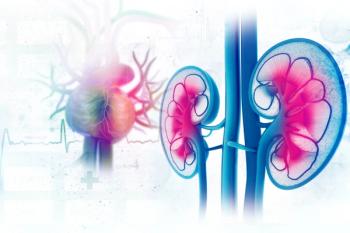
Dapagliflozin substantially slowed the progression of chronic kidney disease (CKD) in patients with immunoglobulin A nephropathy, according to a new study.

Older patients with chronic kidney disease face higher risks of intensive care unit admission and in-hospital mortality if they contract COVID-19, a new report shows.

The founder of the Renal Support Network discusses why patients with chronic kidney disease want Congress to change Medicare policy to allow payment for oral treatments for anemia caused by iron deficiency.

About 5.4% of patients with end-stage renal disease (ESRD) who begin renal replacement therapy as children go on to have vascular events, and 4.1% of those patients die as a result of vascular events, though the real incidence rates are likely higher, according to new research.
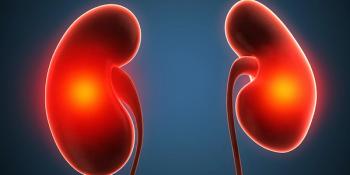
A new analysis reveals penalties levied under a CMS program to improve the quality of care at dialysis centers did not lead to significant change.

Some consider patients with type 2 diabetes (T2D) and chronic kidney disease poor candidates for metformin monotherapy due to the risk of lactic acidosis. However, new research finds patients who can tolerate the drug can gain similar benefits with or without kidney disease.
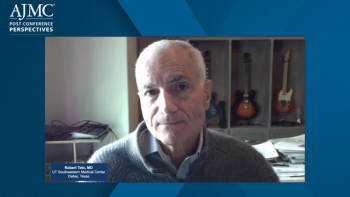
Closing out the discussion, an expert in chronic kidney disease (CKD) highlights how care for patients with CKD may change in the future based on data presented at AMCP.

Robert Toto, MD, provides his expert opinion regarding recent data from Forsythe, et al about the clinical and humanistic burden of IgA nephropathy.

An expert in chronic kidney disease (CKD) provides a recap of data, recently released at AMCP, around the estimate of the US incident population of IgA nephropathy.

The new analysis suggests that dementia screenings might also include kidney function estimation.

An overview of the implications of the recent dapagliflozin data in chronic kidney disease (CKD) treatment to US clinicians and payers.

An expert in chronic kidney disease (CKD) discusses the importance of showing data at the 3-year mark for the DAPA-CKD study, released at AMCP.

Robert Toto, MD, recaps another recent analysis of data from DAPA-CKD that looked at the time-to-event and cost consequence of delaying clinical events in chronic kidney disease (CKD).

Two-thirds of patients with diabetic kidney disease who are eligible for treatment with sodium-glucose cotransporter 2 (SGLT2) inhibitors are not being prescribed them, a new study shows.
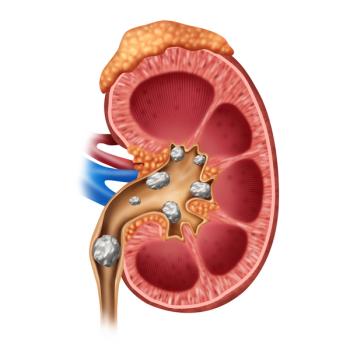
Sodium-glucose transporter 2 (SGLT2) inhibitors decrease the risk of acute kidney injury and severe hypoglycemia for those with diabetes, heart failure, and chronic kidney disease (CKD) but increase the risk of diabetic ketoacidosis.

A recap of the dapagliflozin data from the DAPA-CKD study and how it relates to reductions in healthcare resource utilization.

An expert in chronic kidney disease (CKD) provides an overview of healthcare resource utilization data from the DAPA-CKD study, which was recently released at AMCP.

Robert Toto, MD, discusses key factors of healthcare resource utilization for patients with chronic kidney disease (CKD) and gives an overview of the link between CKD and cardiovascular disease.

A report using data from the DAPA-CKD study found that dapagliflozin would lead to more than $99 million in savings in a population matched to the trial’s inclusion criteria.
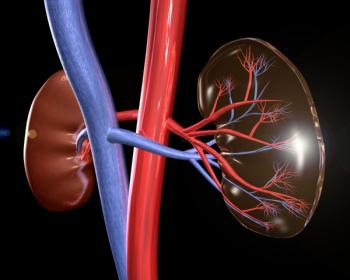
The study results were released as nephrologists and others are awaiting the findings of a joint task force of 2 national kidney organizations looking at alternative approaches to estimating glomerular filtration rate.

Although the Center for Medicare and Medicaid Innovation (CMMI) has delayed the start of payment models for kidney care, one dialysis provider says it remains committed to the concept.

Last year, a data monitoring committee halted the DAPA-CKD trial when it found the evidence of efficacy was overwhelming, after it was shown the trial met all its primary and secondary end points for patients with chronic kidney disease, with and without type 2 diabetes.

New research highlights a relationship between chronic kidney disease (CKD) and cerebral small vessel disease.
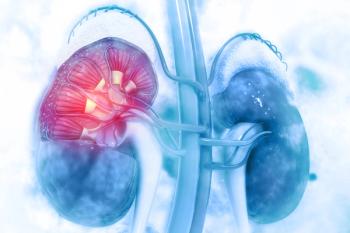
Quality of life is similar between patients with chronic kidney disease (CKD) undergoing hemodialysis and those having continuous ambulatory peritoneal dialysis (CAPD) in the hospital.

259 Prospect Plains Rd, Bldg H
Cranbury, NJ 08512
© 2025 MJH Life Sciences®
All rights reserved.
